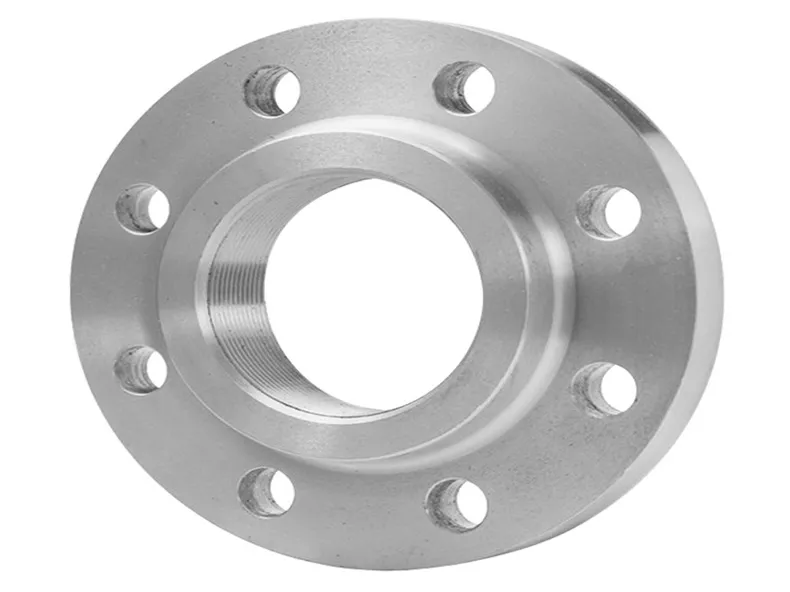UNI Flange
UNI flanges, established under the standards set by the Italian Organization for Standardization (UNI), represent a key component in the global piping industry. These flanges are designed to adhere to specific dimensional and pressure rating requirements outlined by UNI standards, ensuring compatibility and reliability in various piping systems. UNI flanges are used extensively across diverse industries, including oil and gas, chemical processing, and power generation, for their robust construction and precise engineering. Their adherence to UNI specifications guarantees high performance, durability, and seamless integration into existing systems, making them a preferred choice for many international projects.
REFINE BY
- Flange Manufacturer
- Flange standard
- Welding Neck Flange
- Stainless steel Flange
- Carbon & Alloy steel Flange
- Blind Flange
- Lap Joint Flange
- Orifice Flange
- Threaded Flange
- Swivel Ring Flange
- Reducing Flange
- Slip-On Flange
- Spectacle Blind Flange
- Compact Flange
- 1/2" (24)
- 3/4" (24)
- 1" (24)
- 1-1/4" (24)
- 1-1/2" (24)
- 2" (25)
- 2-1/2" (24)
- 3" (24)
- 4" (20)
- 4" (20)
- 304L (179)
- 316L (179)
UNI Flange Models

Design And Features Of UNI Flanges
UNI flanges come in different sizes, typically ranging from small diameters for light-duty applications to large diameters for heavy-duty uses. The dimensions are standardized to ensure uniformity and compatibility with other piping components.
UNI flanges are available in different pressure ratings, which indicate their ability to withstand internal pressure without failure. These ratings are crucial for selecting the appropriate flange for high-pressure or low-pressure applications.
UNI flanges can be made from various materials, covering carbon steel, stainless steel, and alloy steels. The material selection is based on the needs of the application, such as resistance to corrosion, high temperatures, or mechanical stress.
Types Of UNI Flanges
Slip-On Flanges
These flanges are positioned over the pipe and subsequently welded. They are easy to install and are used in low-pressure applications.

Weld Neck Flanges
Characterized by a long tapered neck, these flanges are welded directly onto the pipe, providing a strong and durable connection. They are suitable for high-pressure applications.

Blind Flanges
Used to seal the end of a piping system, blind flanges are designed to close off a pipeline or vessel.

Socket Weld Flanges
These flanges are used for small-diameter, high-pressure pipes. The pipe is inserted into the flange, and a weld is applied around the joint.

Threaded Flanges
These threaded flanges have internal threads that match the external threads of the pipe, allowing for a bolted connection without welding.

Applications Of UNI Flanges
In the oil and gas industry, UNI flanges are used for their ability to withstand high pressures and harsh operating conditions. They are employed in pipelines, refineries, and offshore platforms, where reliable connections are essential for safe and efficient operations.
In power generation facilities, UNI flanges are used to connect various components of the steam and water systems. Their capacity to withstand high pressures and temperatures makes them suitable for boilers, turbines, and other critical equipment.
UNI flanges are widely used in water and wastewater treatment plants, where they are employed to connect pipelines, valves, and other components. Their durability and strength are essential for handling the pressures and stresses associated with these systems.
Installation And Maintenance
Proper installation of UNI flanges is crucial for ensuring their performance and longevity. The flange should be aligned accurately with the connecting components, and the appropriate gaskets and bolts should be used to achieve a secure and leak-proof connection. Installation procedures should follow the guidelines specified in UNI standards to ensure proper fit and function.
Routine maintenance of UNI flanges involves inspecting the flange and its connections for signs of wear, corrosion, or damage. Regular inspections and maintenance help to identify potential issues early and prevent leaks or failures. In corrosive or high-stress environments, additional protective measures, such as coatings or corrosion-resistant materials, may be required.
Comparison With Other Flange Standards
- UNI vs. ANSI Flanges
- UNI vs. DIN Flanges
- UNI vs. JIS Flanges
While UNI flanges are standardized according to Italian specifications, ANSI (American National Standards Institute) flanges follow different dimensional and pressure rating standards. The choice between UNI and ANSI flanges depends on regional standards and compatibility with existing piping systems.
DIN (Deutsches Institut für Normung) flanges are governed by German standards, which differ from UNI standards in terms of dimensions and pressure ratings. UNI flanges offer specific advantages in Italian and European markets, while DIN flanges are more commonly used in Germany and other European countries.
JIS (Japanese Industrial Standards) flanges follow Japanese specifications, which differ from UNI standards in terms of dimensions and pressure ratings. UNI flanges are designed to meet the needs of the Italian and European markets, while JIS flanges cater to the Japanese industrial sector.
Common Issues And Troubleshooting
Leaks
Leaks in UNI flanges can occur due to improper installation, damaged gaskets, or misalignment. To address leaks, inspect the flange and its connections, ensure proper alignment, and replace any damaged gaskets or seals.
Corrosion
Corrosion can affect the performance and longevity of UNI flanges. To prevent corrosion, use corrosion-resistant materials or coatings and conduct regular inspections and maintenance.
Elite Piping Manufacture Co., Ltd. is a premier provider of high-quality UNI flanges, meticulously engineered to meet the stringent standards set by the Italian Organization for Standardization (UNI). With a focus on precision and durability, Elite Piping delivers flanges that are ideal for a wide range of industrial applications, including oil and gas, chemical processing, and power generation.
Our UNI flanges are manufactured using top-grade materials, ensuring reliability and seamless integration into complex piping systems. Elite Piping’s commitment to excellence and customer satisfaction makes us a trusted partner for projects requiring robust and compliant flange solutions.
GET IN TOUCH
Company:
Elite Piping Manufacture Co., Ltd.
Factory Address:
Office # 805, Building No. 6 Poly Metropolitan, Yongshum Town, Tongzhou District, Beijing, China.
Contact Person:
Michael
Contact Numbers:
+86 186 1829 1381
Email:
elite@elitepiping.com







